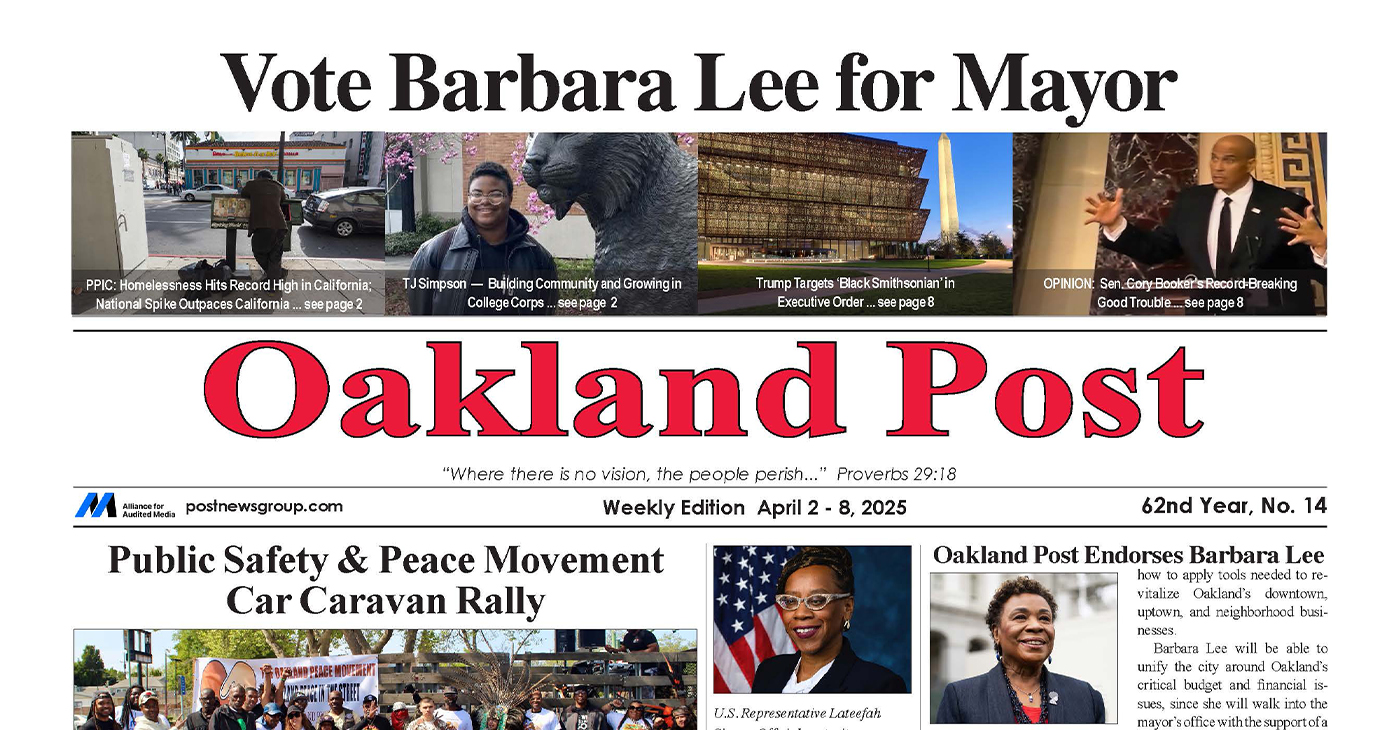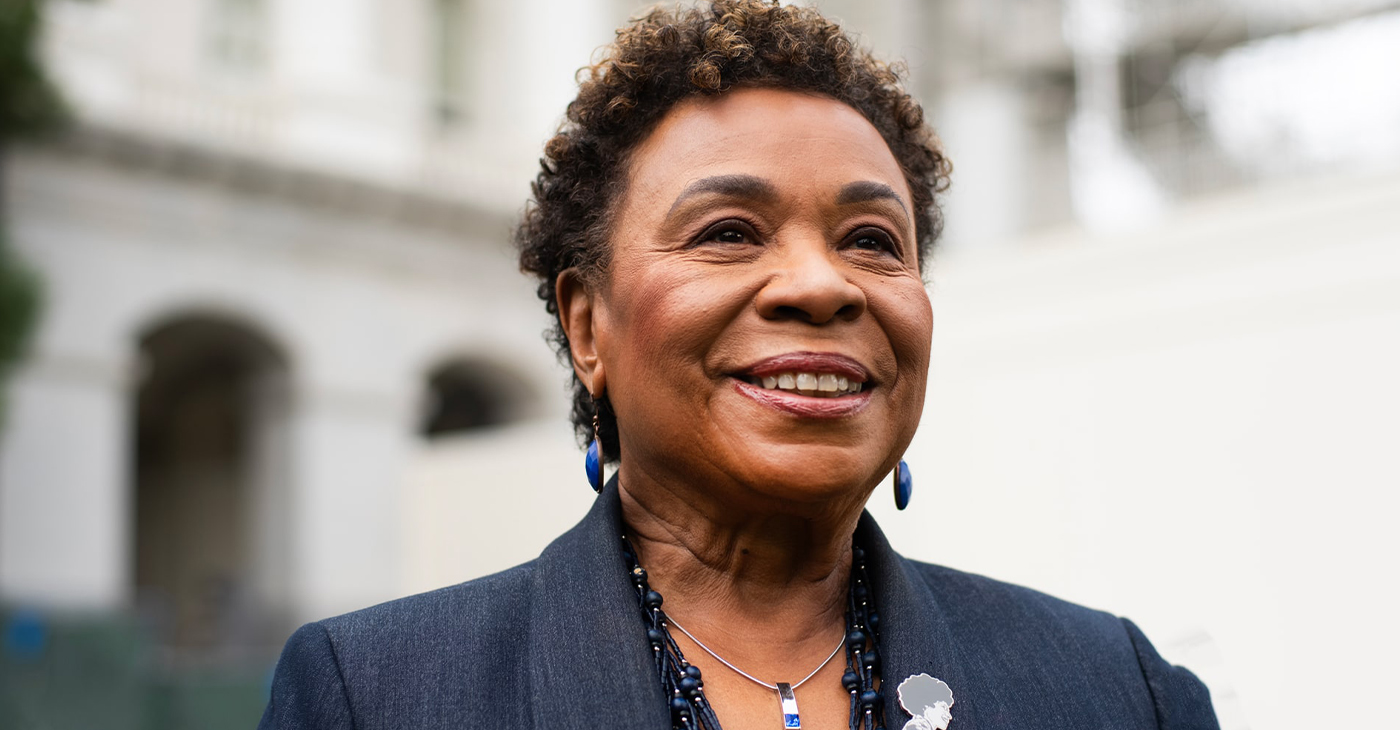Politics
Many in Baltimore Community React with Skepticism to O’Malley’s Claims of Progressive Bona Fides

Former Maryland Gov. Martin O’Malley speaks before signing a bill abolishing capital punishment in the state during a ceremony in Annapolis, Md., Thursday, May 2, 2013. (AP Photo/Patrick Semansky)
by Roberto Alejandro
Special to the NNPA from the Afro-American Newspaper
Former Maryland Gov. Martin O’Malley officially entered the presidential race May 30 with a speech in Baltimore’s Federal Hill, but many in Baltimore are skeptical of both his chances as well as the idea that he is a legitimate liberal alternative to Hillary Clinton, the frontrunner for the Democratic presidential nomination.
“[O’Malley’s candidacy] is still a long shot,” wrote John Bullock, professor of political science at Towson University, in a statement to the AFRO. “He is trying to present himself as a credible alternative to Clinton, but that may not be successful unless she falters. In his announcement, he attempted to appeal to progressives, but Bernie Sanders has the strongest record in that area.”
Indeed, O’Malley made his case for the Democratic nomination during his announcement speech on the strength of a series of supposedly progressive accomplishments during his time in city and state government.
“Together, we made our city believe again and we invented a better and new way of governing called CitiStat, and we got things done. Together, we made our state’s public schools the best in the nation. We made college more affordable for more families. . . . We led our people forward through a devastating recession and we took greater care to protect the land, the air, and the waters of our Chesapeake Bay. And we passed the DREAM Act and we passed marriage equality. Together, we raised the minimum wage and we maintained the highest median income of any state in the nation,” said O’Malley, according to a video of his announcement speech on his campaign website.
But it is not only Sanders’s progressive record that O’Malley will have to overcome, but the skepticism of those who lived through the era of these alleged progressive accomplishments and remember it differently.
“It’s the job of people like myself and others who know O’Malley, who directly engaged and challenged his policies as it relates to Black people to elevate the stories about the things that he did during his time as governor, his time as mayor, to push back against that idea (of O’Mally as a progressive),” said Dayvon Love, public policy director for Leaders of a Beautiful Struggle, referring, in part, to O’Malley’s institution of zero tolerance policing during his time as Baltimore City mayor and the O’Malley administration’s support for a $100 million youth jail that was halted by grassroots efforts a number of years ago.
For Leo Burroughs, chairman of the Committee of Concerned Citizens, that history of pursuing policies that were often deleterious to persons of color makes O’Malley more of a “blue dog Democrat” than a tried-and-true liberal.
“[O’Malley is] extraordinarily good at wheeling and dealing in ways that are not in the best interest of the poor, Blacks, or the middle-class. Horrible thought this guy running…but he knows how to reconfigure and reinvent himself,” said Burroughs. “He feigns being some kind of a liberal—this guy was never a liberal; he was always Mr. Zero Tolerance and he’s still Mr. Zero Tolerance.”
To media consultant and political strategist Catalina Byrd, the persons speaking in support of O’Malley at his announcement event were representative of the alleged disconnect between the politician’s rhetoric and policies, of which Burroughs and Love spoke.
“The people that he had speaking for him . . . either weren’t here (in Baltimore City) when he was mayor, or lived outside the city and don’t know what type of mayor he was, or were not impacted—based on their social status, or their fiscal status—by the type of governor that he was, and can’t make the connection and the correlation to how he has failed at every level besides just winning every election. He’s failed in terms of leadership and new direction for both the city and the state,” said Byrd.
In his announcement speech, O’Malley said his accomplishments in Maryland were a function of new leadership and perspective, but it seems he will have to do a better job of convincing the nation this is what he brings to the table than he has some of his previous constituents.
Activism
Oakland Post: Week of April 2 – 8, 2025
The printed Weekly Edition of the Oakland Post: Week of April 2 – 8, 2025

To enlarge your view of this issue, use the slider, magnifying glass icon or full page icon in the lower right corner of the browser window.
Activism
Oakland Post Endorses Barbara Lee
Barbara Lee will be able to unify the city around Oakland’s critical budget and financial issues, since she will walk into the mayor’s office with the support of a super majority of seven city council members — enabling her to achieve much-needed consensus on moving Oakland into a successful future.

As we end the celebration of Women’s History Month in Oakland, we endorse Barbara Lee, a woman of demonstrated historical significance. In our opinion, she has the best chance of uniting the city and achieving our needs for affordable housing, public safety, and fiscal accountability.
As a former small business owner, Barbara Lee understands how to apply tools needed to revitalize Oakland’s downtown, uptown, and neighborhood businesses.
Barbara Lee will be able to unify the city around Oakland’s critical budget and financial issues, since she will walk into the mayor’s office with the support of a super majority of seven city council members — enabling her to achieve much-needed consensus on moving Oakland into a successful future.
It is notable that many of those who fought politically on both sides of the recent recall election battles have now laid down their weapons and become brothers and sisters in support of Barbara Lee. The Oakland Post is pleased to join them.
Activism
Oakland Post: Week of March 28 – April 1, 2025
The printed Weekly Edition of the Oakland Post: Week of March 28 – April 1, 2025

To enlarge your view of this issue, use the slider, magnifying glass icon or full page icon in the lower right corner of the browser window.
-

 Activism3 weeks ago
Activism3 weeks agoWe Fought on Opposite Sides of the Sheng Thao Recall. Here’s Why We’re Uniting Behind Barbara Lee for Oakland Mayor
-

 Activism4 weeks ago
Activism4 weeks agoSan Francisco Is Investing Millions to Address Food Insecurity. Is Oakland Doing the Same?
-

 #NNPA BlackPress3 weeks ago
#NNPA BlackPress3 weeks agoRev. Dr. Jamal Bryant’s Black Church Target Boycott Mobilizes 150,000
-

 Activism3 weeks ago
Activism3 weeks agoFaith Leaders Back Barbara Lee for Mayor, Criticize Candidate Loren Taylor for Dishonest Campaigning
-

 Activism4 weeks ago
Activism4 weeks agoOakland Post: Week of March 12 – 18, 2025
-

 #NNPA BlackPress3 weeks ago
#NNPA BlackPress3 weeks agoRecently Approved Budget Plan Favors Wealthy, Slashes Aid to Low-Income Americans
-

 Activism3 weeks ago
Activism3 weeks agoGroup Takes First Steps to Recall District Attorney Diana Becton
-

 Activism2 weeks ago
Activism2 weeks agoOakland’s Most Vulnerable Neighborhoods Are Struggling to Eat and Stay Healthy






















































